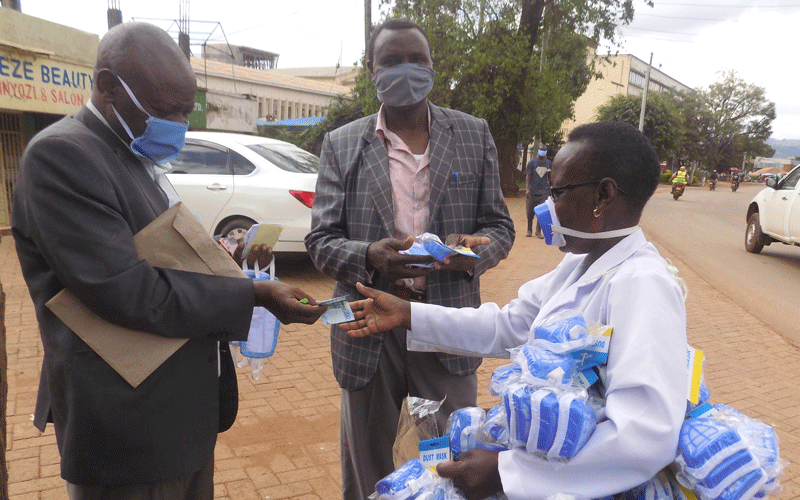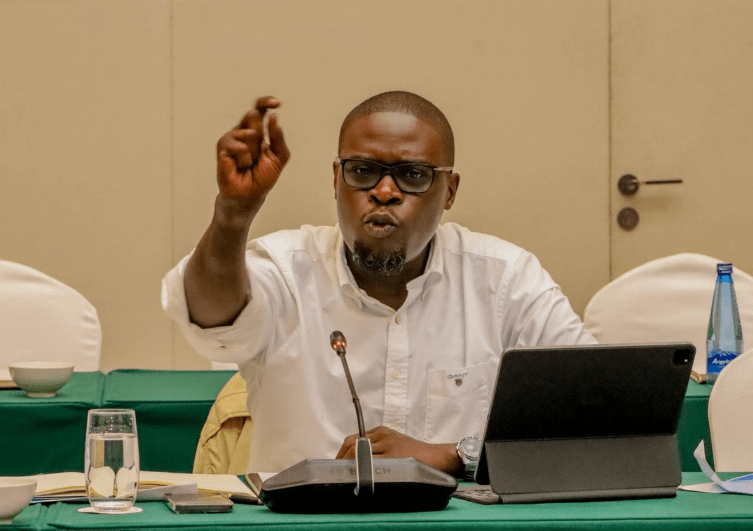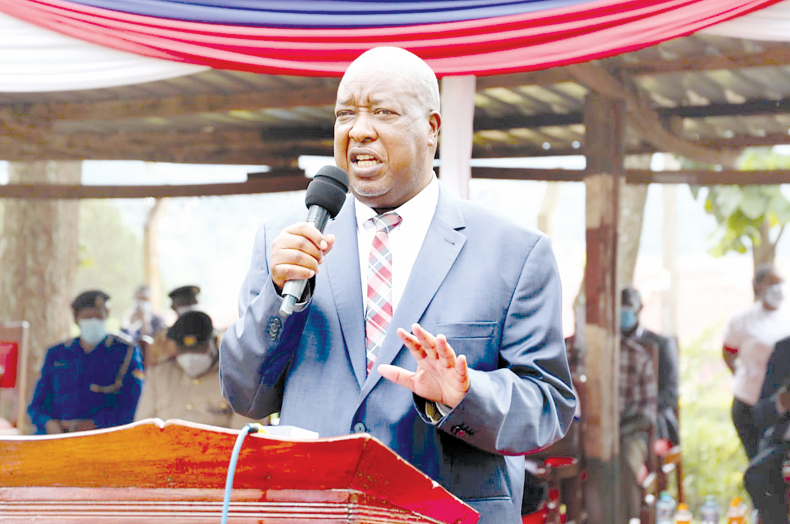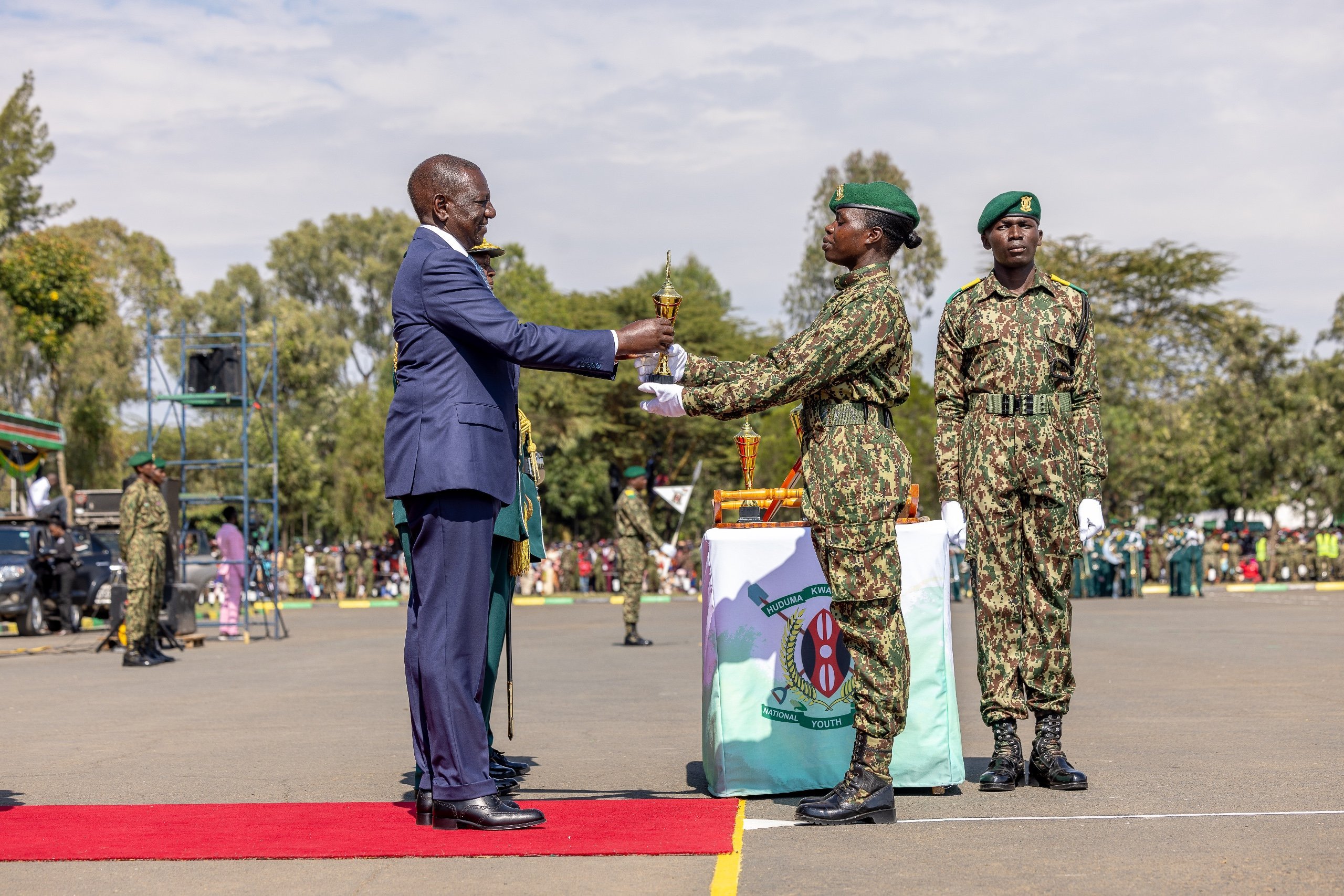Kenyans’ huge role in battle to tame the spread of Covid-19

Emeka-Mayaka Gekara
Kenyans should brace themselves for a “marathon” as the country enters the critical second month in the battle against the Covid-19 pandemic, which has radically altered the way they live and conduct business.
Health Cabinet Secretary Mutahi Kagwe says the disease is likely to be around for some time and Kenyans should be prepared for a long battle.
“We are in for the whole hog. It is not a sprint. We are going for a marathon. Kenyans must brace themselves for the fight ahead by strict compliance to the safety guidelines spelt out,” said Kagwe, whose daily media updates have become part of the daily routine for millions of Kenyans across the country.
The disease has altered the country’s way of life in a span of a month, that Kenyans now walk on the streets and villages wearing masks and treat each other with some necessary suspicion.
In a move only witnessed during the failed 1982 coup, Kenyans have been put on a dusk-to-dawn curfew, schools have been closed, entry in and out of Nairobi restricted, borders shut and international travel suspended.
Businesses have been forced to scale down, effectively rendering many employees jobless, churches and entertainment spots closed in a raft of radical measures to prevent the spread of the virus.
The fight has also thrown some public servants into the deep end, notably newly-appointed Kagwe, acting Health Director General Patrick Amoth and Chief Administrative Secretary Mercy Mwangangi.
But the most frightening information so far is the projection by experts that the virus is likely to hit its peak in the next two months, which could result in either a lull in the spread or a dramatic rise in the number of infections or deaths that could further strain the country’s weak health systems.
Amoth has warned the number of Covid-19 cases could hit 10,000 by end of this month.
“We stand with the earlier projections because we have not done community-based testing. The results we have are from quarantine centres and a few cases picked by rapid response teams.
We don’t know what will happen, whether the figures will match or not…taking into consideration the measures we have taken which could work in our favour or not,” he said.
Besides health, there have been significant concerns about food security, with the government yesterday rallying its agencies to identify individuals who might require relief supplies should the situation escalate in coming days.
Public discourse
Due to the pandemic, initially mundane practices such as washing of hands have become life and death matters, shaking of hands a health hazard, hugs and family visits a misnomer, huge funeral gatherings are now illegal while families have been advised to stay at home.
“Going forward, it will be a question of self-responsibility and discipline. The issue of social distancing, wearing of masks and observing of the public transport regulations will be critical,” said Kagwe.
Expressions such as self-quarantine, social distancing, Personal Protective Equipment (PPE) and curfew have become common in public discourse, from cities to hamlets in rural villages. Companies have been forced to adopt the policy of working from home.
“Our families, our schools, our way of life, the way we worship, our economy, our businesses, our workers, every single Kenyan stands threatened by this invisible, relentless enemy that is Covid 19,” said President Uhuru Kenyatta in a recent address where he declared that the country is at war.
“The virus is unforgiving, and its rate of growth if not arrested is exponential. Yet because it cannot be seen or smelt, it is an enemy that can easily convince you that life can continue as normal.”
The unusual Easter holiday this past weekend brought home the reality of the coronavirus battle as well as the hurried night burial of a Covid-19 victim in Siaya county at the weekend.
Churches were empty with only a few clerics allowed to conduct masses that were broadcast live, while others relayed their summons online.
In his message, President Uhuru reminded Kenyans that we are celebrating Easter in an unprecedented and increasingly complicated situation.
“While the Easter period is often celebrated with friends and family, we are finding that this year it must be deferred due to the preventative measures we have put in place for our own safety and for the safety of our loved ones,” he said.
Far-reaching effects
Thousands of city families who would have ordinarily flocked to churches, travelled to the countryside to visit their relatives or visited tourist sites for the long holiday remained holed in their houses following the travel ban in and out of Nairobi, Mombasa.
Kwale and Kilifi counties, which have been identified as the epicentres of the pandemic.
At the usually packed Holy Family Basilica on Sunday, John Cardinal Njue and Nyeri Archbishop Anthony Muheria led less than 10 priests in celebrating mass.
The service lasted barely an hour. “The worst virus facing Kenya today is that of greed and pride. Even the rich are amassing wealth by robbing the poor during this time of coronavirus due to greed and politics of lies,” Muheria said.
The containment in Nairobi which hosts more than five million people and the ban of international travel has had far-reaching effects, especially given its linkage with other parts of the country.
Public transporters who ferry Kenyans into Nairobi have been forced to ground their services, including major airlines with adverse effects on the hospitality industry.
Major hotels have been forced to close while social events such as weddings have been suspended as families are forced to alter the manner in which they bury their loved ones, with only 15 people allowed to attend a burial.
Retired Catholic Archbishop Raphael Mwana Mwana a’Nzeki was buried in a low-key ceremony attended by a handful of mourners in Nairobi last week.
In the absence of the coronavirus pandemic the respected bishop would have been given a grand sendoff attended by thousands of Catholic faithful.
The Nairobi isolation has been particularly painful for travellers across the region as well as traders who supply the city and those who buy their goods in Nairobi.
The plight of Esther Musonya, a breast cancer patient fighting to cross a roadblock at one of the entry points into Nairobi last week while on her way to Kijabe Mission Hospital in Limuru, armed with medical documents, was a painful illustration of the plight of many Kenyans. Police only gave her the green light to travel after showing documents even as other travellers were turned away.
However, away from the gloom, the pandemic has exposed the ingenuity, innovativeness and enterprising spirit of Kenyans.
Innovative Kenyans have come up with solutions of medical items such as ventilators while traders have produced thousands of face masks now being sold across the country.
The President has announced a raft of measures to protect businesses and vulnerable groups such as the elderly.















